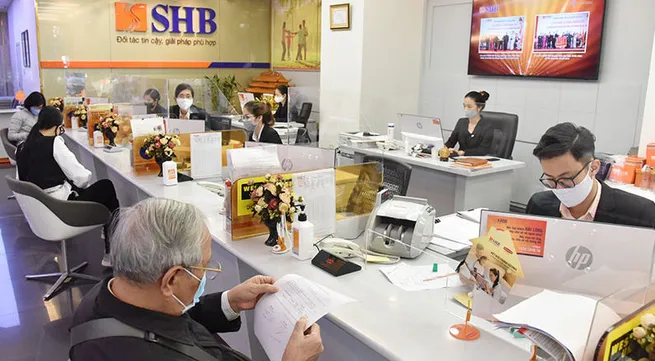Banks support enterprises to access funds for year-end peak

Currently, liquidity at credit institutions is relatively strong, with many allowed to increase their lending thresholds, meaning that cheap loans are readily available. But whether this can reach enterprises depends on many factors.
According to Nguyen Tuan Anh, head of the credit department at the State Bank of Vietnam, credit growth slowed in August and continued to be affected in September due to COVID-19 restrictions. But growth is expected to pick up in October and during the final two months of 2021.
Securities company BSC predicted that the demand for capital to fulfil year-end orders will rise as many southern localities begin to ease restrictions and allow businesses to resume operations following encouraging results in containing the pandemic. The BSC forecasts that overall credit growth in 2021 will hit 13%.
Small and medium-sized enterprises and retail companies currently account for 70-80% of credit of commercial banks. Although their demand for capital fell in recent months due to COVID-19, they remain the main drivers for banks to offer preferential lending products in the final months of the year.
The MSB, for example, pledged to cut interest rates by 3 percentage points for manufacturing and 1 percentage point for agricultural production and home buyers. The lender has also reserved VND12 trillion (US$528 million) for exporters, importers, healthcare and construction companies with rates as low as 5.5% for loans in Vietnamese dong and 3% for loans in US dollars.
According to Andrew Jeffries, the ADB Country Director for Vietnam, as the economy is slowing down, Vietnam needs to inject more money therein, but he also warned that the government should have harmonious coordination so as to avoid serious negative consequences.
Commercial banks have granted new loans but remain cautious as the COVID-19 pandemic has severely affected enterprises’ ability to repay their debts. Many banks have a common voice on lowering their interest rates but cutting rates is only one thing and whether money can be injected into enterprises is a another. Banks want to give out loans but enterprises cannot meet borrowing requirements.
In order to solve this problem, Vietnam can use credit guarantees, suggested Andrew Jeffries, elaborating that the government can provide guarantees for some lending programmes to allow enterprises that meet requirements to borrow.
According to Dau Anh Tuan, head of legal affairs at the Vietnam Chamber of Industry and Commerce, it is highly likely that enterprises will not be able to restore their production until mid-2022. Therefore, besides extending support policies concerning taxes and land rents, it is necessary to introduce other stronger support measures.
Secretary General of the Banking Association Nguyen Quoc Hung noted that credit institutions are also enterprises affected by COVID-19 but the impacts on banks are delayed and will more so show up over time. But banks are still making efforts to support other enterprises.
He added that credit institutions have almost run out of room to support businesses, thus new mechanisms and policies beyond the State Bank’s authority are needed so that banks can continue providing support for businesses.
Hung suggested that the State Bank, Ministry of Finance and the Ministry of Planning and Investment conduct dialogue with enterprises to introduce appropriate support policies, adding that guarantees must be provided so that enterprises can access bank loans.





